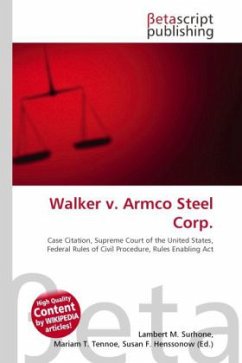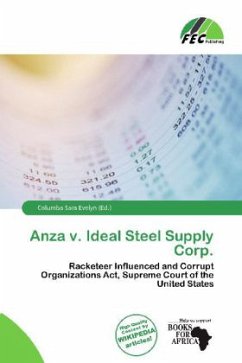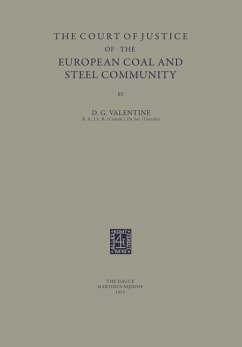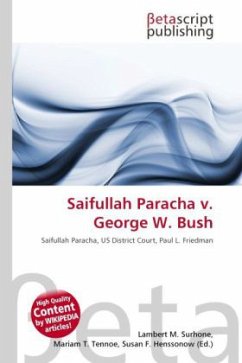
Walker v. Armco Steel Corp.
Versandkostenfrei!
Versandfertig in 6-10 Tagen
26,99 €
inkl. MwSt.

PAYBACK Punkte
13 °P sammeln!
High Quality Content by WIKIPEDIA articles! Walker v. Armco Steel Corp., 446 U.S. 740 (1980), was a decision by the Supreme Court of the United States in which the Court further refined the test for determining whether federal courts sitting in diversity must apply state law as opposed to federal law. The question in Walker is whether in a diversity action the federal court should follow state law or, alternatively, Rule 3 of the Federal Rules of Civil Procedure in determining when an action is commenced for the purpose of tolling the state statute of limitations. The Court found no such confl...
High Quality Content by WIKIPEDIA articles! Walker v. Armco Steel Corp., 446 U.S. 740 (1980), was a decision by the Supreme Court of the United States in which the Court further refined the test for determining whether federal courts sitting in diversity must apply state law as opposed to federal law. The question in Walker is whether in a diversity action the federal court should follow state law or, alternatively, Rule 3 of the Federal Rules of Civil Procedure in determining when an action is commenced for the purpose of tolling the state statute of limitations. The Court found no such conflict because a court's refusal to apply the federal rule at issue would not in fact thwart some purpose the federal rule was intended to achieve. Favored treatment for federal procedural rules under the Rules Enabling Act is only appropriate when a rule is in fact applicable.












